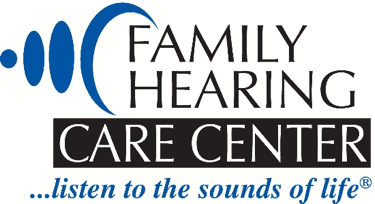
Things People With Hearing Loss Wish You Knew
Living with hearing loss can present unique challenges that may not always be apparent to those with normal hearing. In this article, we’ll explore insights from people with hearing loss, shedding light on their experiences, preferences, and needs. By gaining a deeper understanding of what individuals with hearing loss wish you knew, we can all become better allies.
Hearing Loss is Not Always Visible
One important thing to understand about hearing loss is that it’s not always visible to others. Unlike physical disabilities that may be readily apparent, hearing loss may go unnoticed, especially if individuals use hearing aids or other assistive devices. It’s essential to recognize that someone may have hearing loss even if they don’t appear to have any obvious signs or symptoms. Being mindful of this fact can help foster greater empathy and understanding in our interactions with others, ensuring that we accommodate their needs and preferences appropriately.
Communication Requires Patience and Understanding
Communication can be challenging for individuals with hearing loss, particularly in noisy or crowded environments. It’s essential to exercise patience and understanding when communicating with someone who has hearing loss. Speak clearly and at a moderate pace, facing the individual directly to allow them to lip-read if necessary. Avoid speaking too loudly or shouting, as this can distort speech and make it more difficult to understand. Additionally, be prepared to repeat or rephrase information if needed and provide visual cues or context to aid comprehension. By approaching communication with empathy and flexibility, we can facilitate smoother and more meaningful interactions with individuals who have hearing loss.
Hearing Loss Affects More Than Just Hearing
While the primary impact of hearing loss is on auditory function, its effects extend beyond just hearing. Individuals with hearing loss may experience social isolation, feelings of frustration or inadequacy, and challenges in various aspects of daily life. It’s crucial to recognize the holistic impact of hearing loss on an individual’s well-being and quality of life. By acknowledging the emotional, social, and practical implications of hearing loss, we can offer more comprehensive support and understanding to those affected by it. Empathy and compassion go a long way in helping individuals with hearing loss feel valued, respected, and included in all aspects of life.
Assistive Technology Can Enhance Quality of Life
Advancements in assistive technology have revolutionized the lives of many individuals with hearing loss, providing them with tools and devices to enhance their communication abilities and overall quality of life. From hearing aids and cochlear implants to captioned telephones and speech-to-text apps, there are various options available to assist individuals with hearing loss in their daily lives. It’s essential to be aware of these technologies and their potential benefits, as well as to support individuals in accessing and utilizing them effectively. By embracing assistive technology, we can empower individuals with hearing loss to participate more fully in social, professional, and recreational activities, promoting greater independence and inclusion.
Inclusivity Begins with Awareness and Advocacy
Creating a more inclusive society for individuals with hearing loss requires awareness, advocacy, and collective action. It’s essential for individuals with hearing loss to advocate for their needs and rights, whether in the workplace, healthcare settings, or public spaces. However, it’s equally important for those without hearing loss to educate themselves about hearing loss and actively support efforts to promote inclusivity and accessibility. This may involve advocating for hearing loop systems in public venues, captioning on videos and television programs, or implementing workplace accommodations for employees with hearing loss. By working together to raise awareness and remove barriers, we can create a more inclusive world for everyone.
Empathy and Understanding are Key
At the heart of it all, empathy and understanding are the keys to supporting individuals with hearing loss effectively. By listening to their experiences, respecting their needs and preferences, and advocating for their inclusion, we can create a more compassionate and inclusive society for all. Let’s strive to be mindful of the challenges faced by those with hearing loss and take proactive steps to ensure that they feel valued, respected, and included in every aspect of life!
